Презентація на тему «Business communication»

Business communication
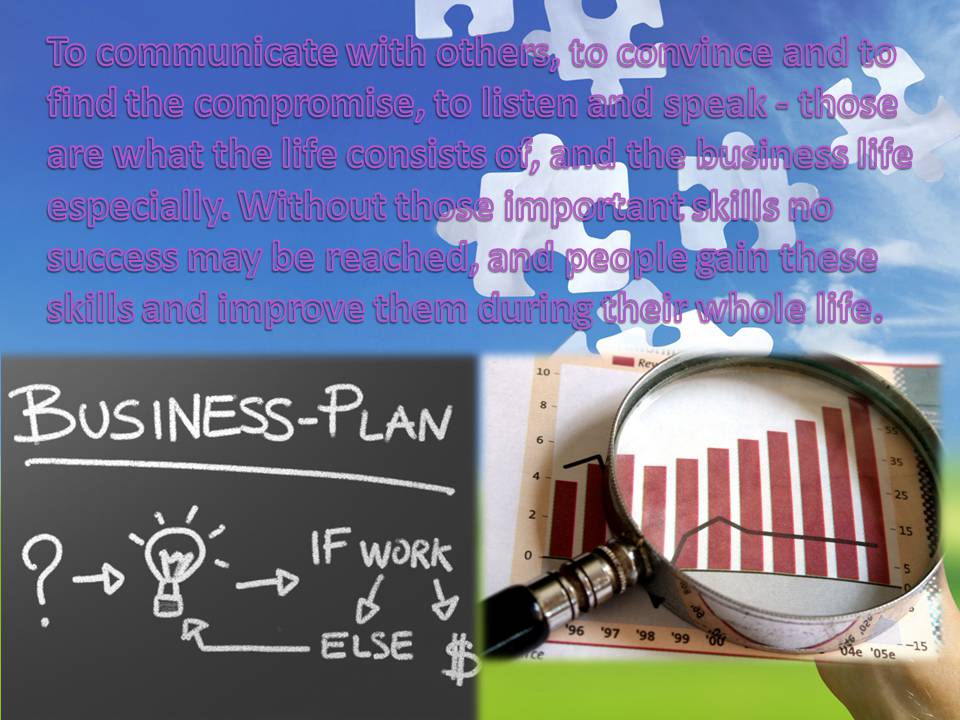
To communicate with others, to convince and to find the compromise, to listen and speak - those are what the life consists of, and the business life especially. Without those important skills no success may be reached, and people gain these skills and improve them during their whole life.
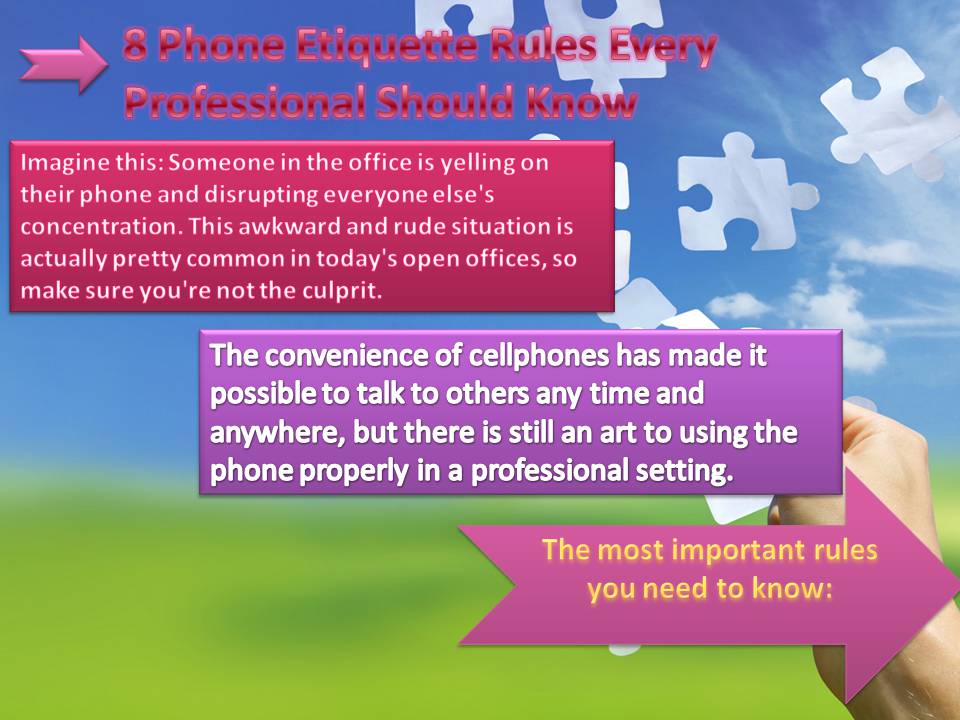
8 Phone Etiquette Rules Every Professional Should Know
Imagine this: Someone in the office is yelling on their phone and disrupting everyone else's concentration. This awkward and rude situation is actually pretty common in today's open offices, so make sure you're not the culprit.
The convenience of cellphones has made it possible to talk to others any time and anywhere, but there is still an art to using the phone properly in a professional setting.
The most important rules you need to know:
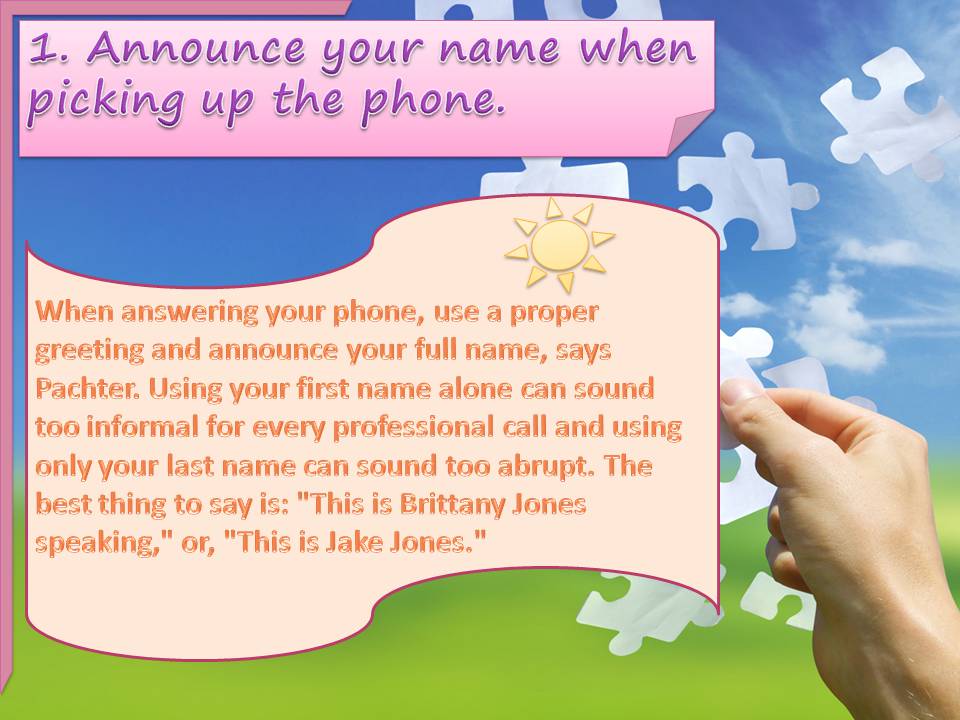
1. Announce your name when picking up the phone.
When answering your phone, use a proper greeting and announce your full name, says Pachter. Using your first name alone can sound too informal for every professional call and using only your last name can sound too abrupt. The best thing to say is: "This is Brittany Jones speaking," or, "This is Jake Jones."
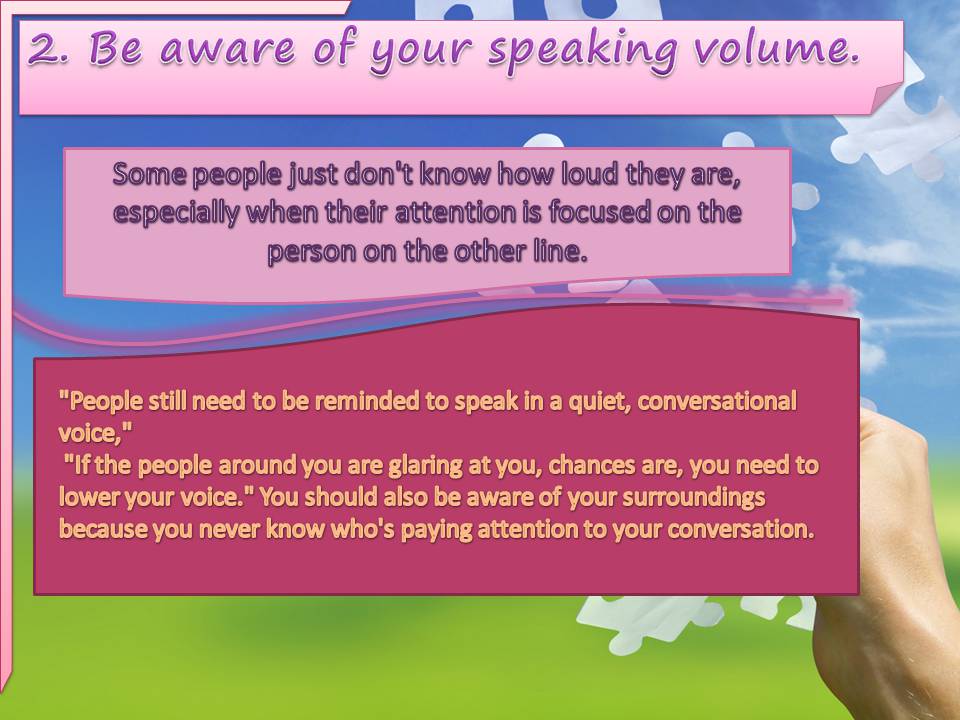
2. Be aware of your speaking volume.
Some people just don't know how loud they are, especially when their attention is focused on the person on the other line.
"People still need to be reminded to speak in a quiet, conversational voice,"
"If the people around you are glaring at you, chances are, you need to lower your voice." You should also be aware of your surroundings because you never know who's paying attention to your conversation.
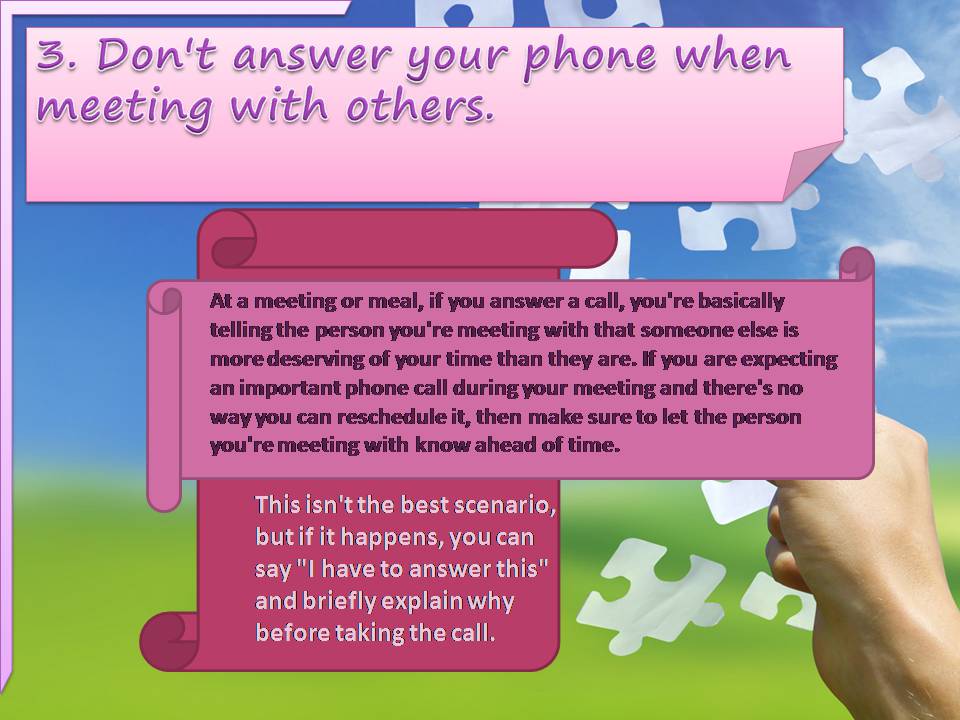
3. Don't answer your phone when meeting with others.
At a meeting or meal, if you answer a call, you're basically telling the person you're meeting with that someone else is more deserving of your time than they are. If you are expecting an important phone call during your meeting and there's no way you can reschedule it, then make sure to let the person you're meeting with know ahead of time.
This isn't the best scenario, but if it happens, you can say "I have to answer this" and briefly explain why before taking the call.
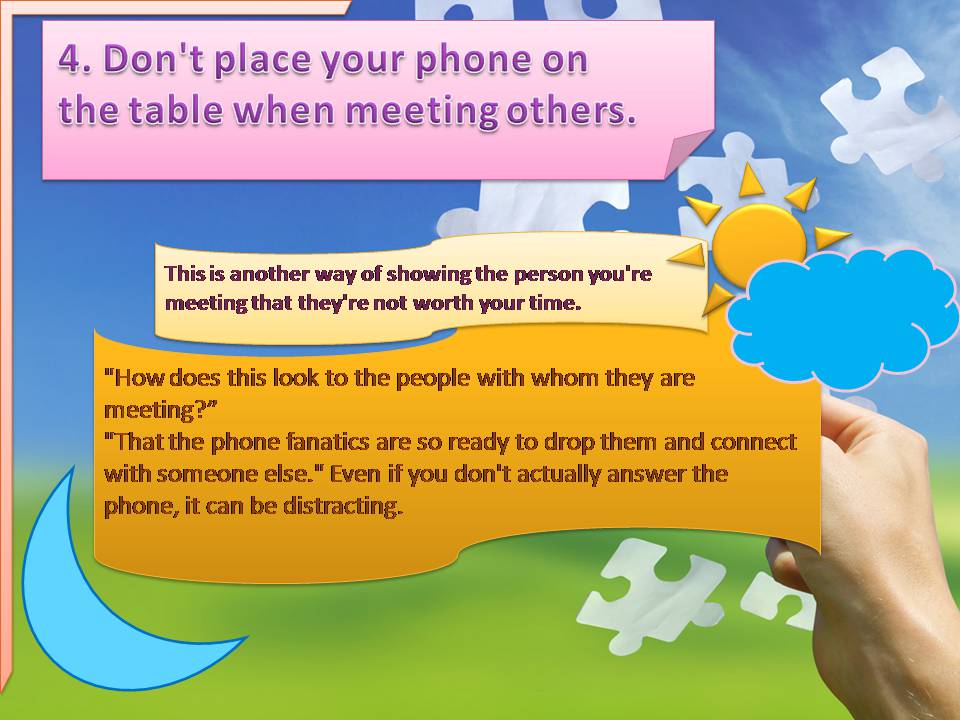
"How does this look to the people with whom they are meeting?”
"That the phone fanatics are so ready to drop them and connect with someone else." Even if you don't actually answer the phone, it can be distracting.
4. Don't place your phone on the table when meeting others.
This is another way of showing the person you're meeting that they're not worth your time.
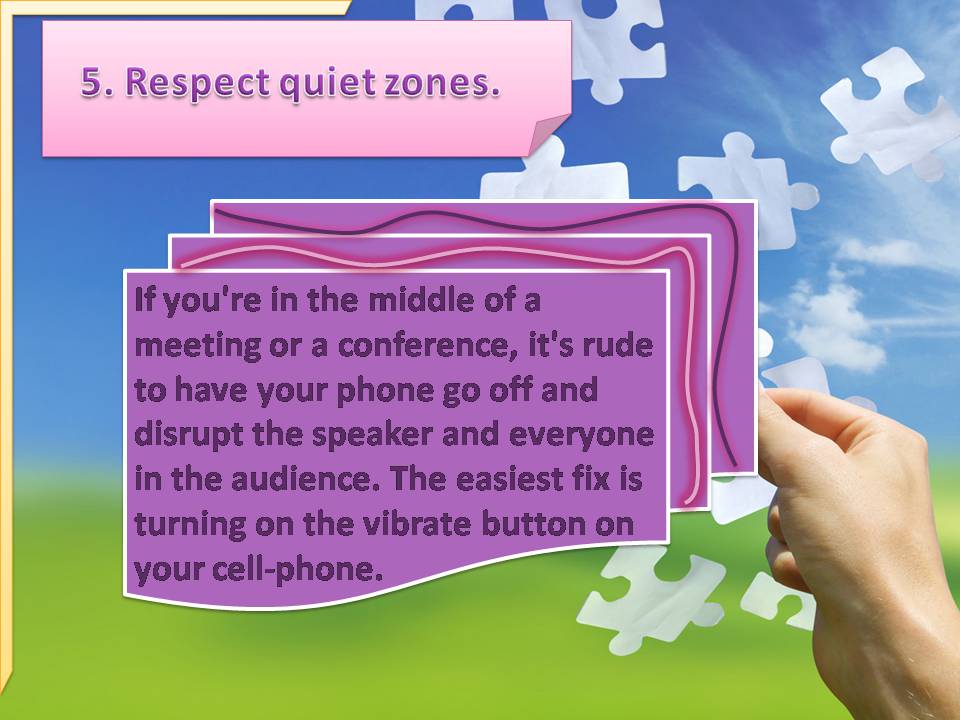
5. Respect quiet zones.
If you're in the middle of a meeting or a conference, it's rude to have your phone go off and disrupt the speaker and everyone in the audience. The easiest fix is turning on the vibrate button on your cell-phone.
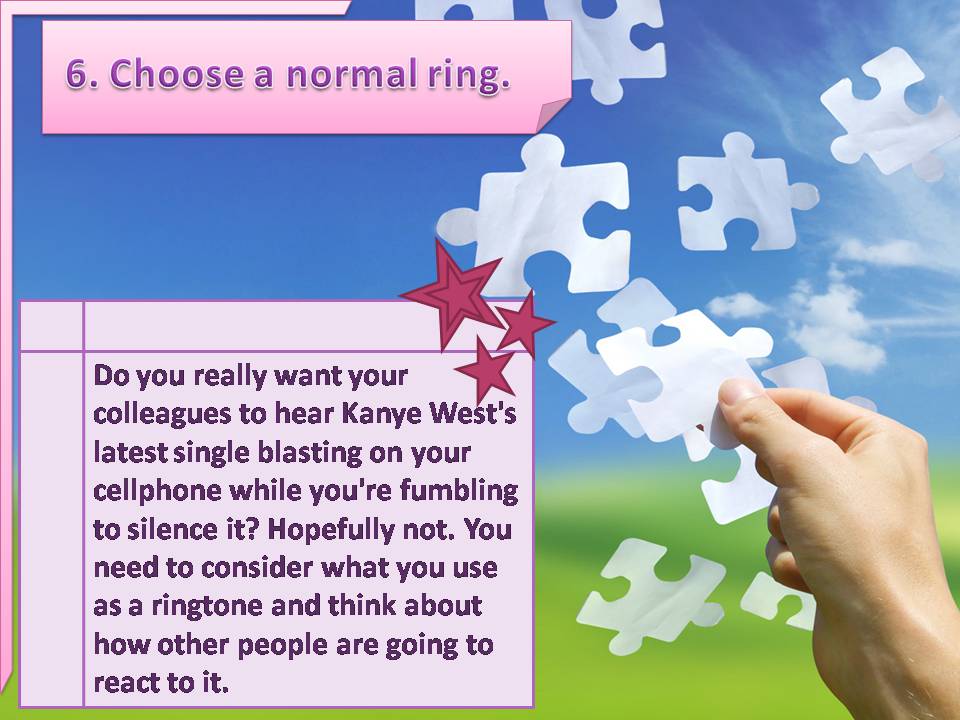
6. Choose a normal ring.
Do you really want your colleagues to hear Kanye West's latest single blasting on your cellphone while you're fumbling to silence it? Hopefully not. You need to consider what you use as a ringtone and think about how other people are going to react to it.
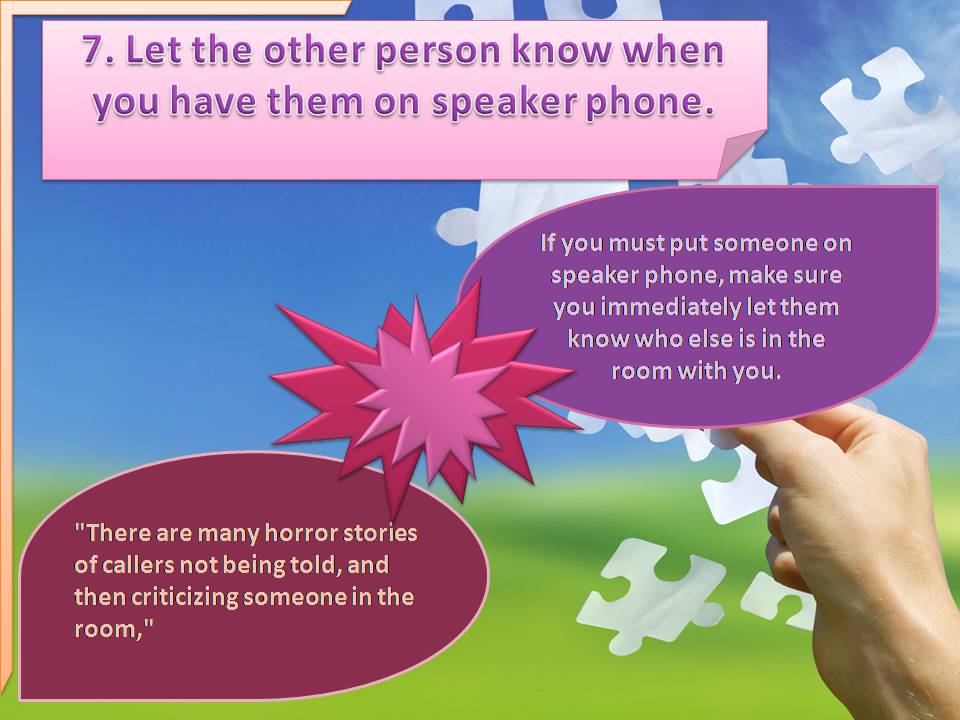
7. Let the other person know when you have them on speaker phone.
If you must put someone on speaker phone, make sure you immediately let them know who else is in the room with you.
"There are many horror stories of callers not being told, and then criticizing someone in the room,"
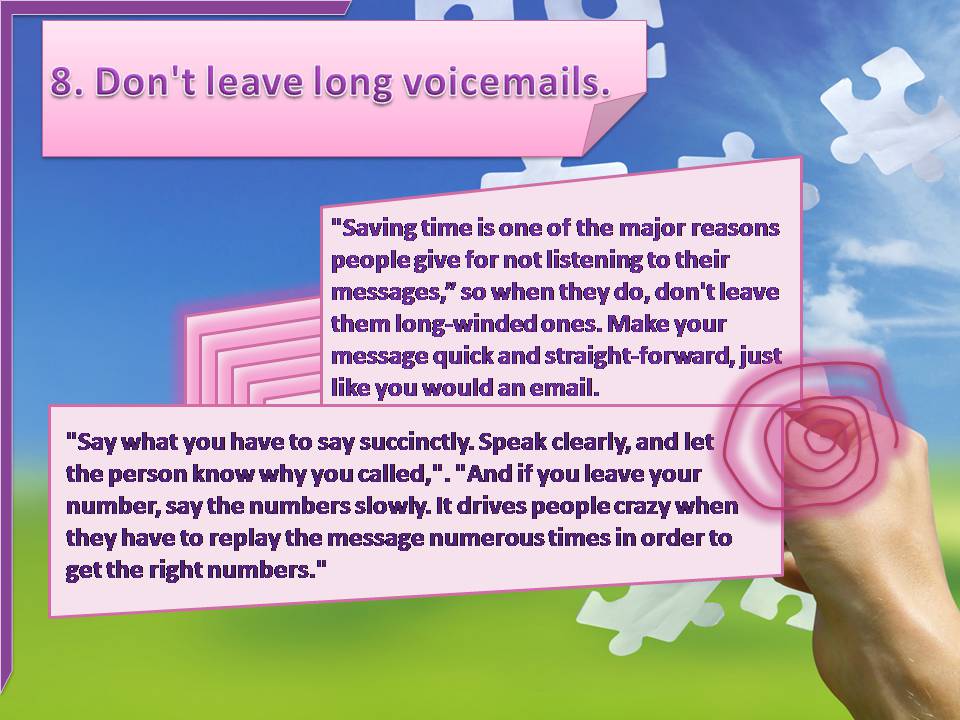
8. Don't leave long voicemails.
"Saving time is one of the major reasons people give for not listening to their messages,” so when they do, don't leave them long-winded ones. Make your message quick and straight-forward, just like you would an email.
"Say what you have to say succinctly. Speak clearly, and let the person know why you called,". "And if you leave your number, say the numbers slowly. It drives people crazy when they have to replay the message numerous times in order to get the right numbers."